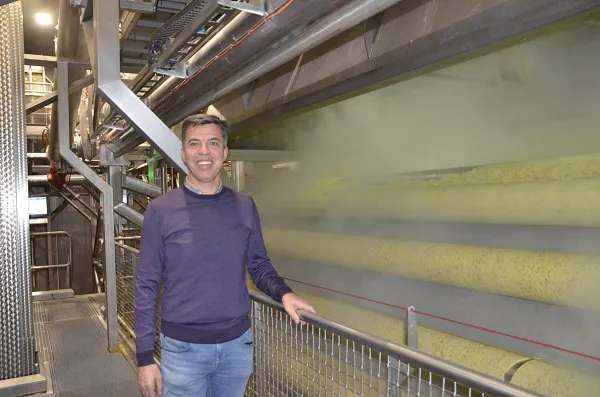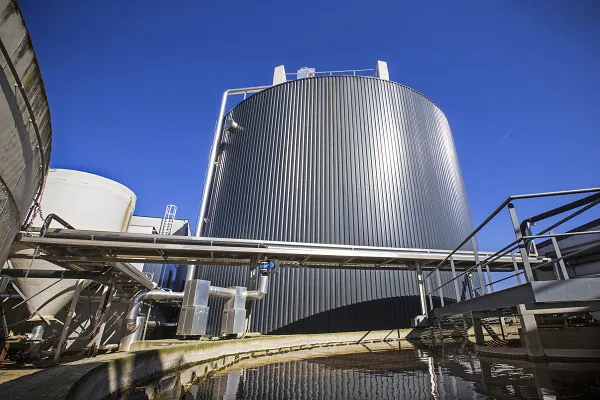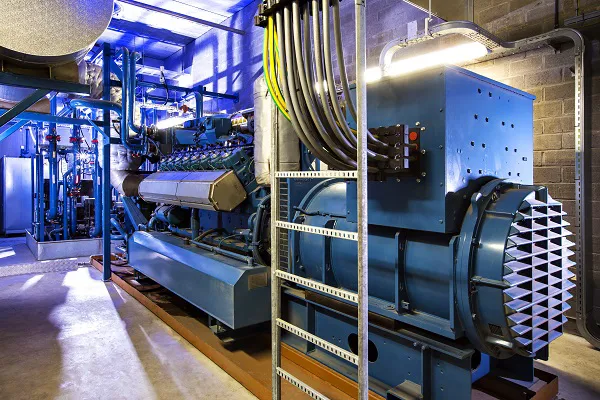"Fresh French fries sales to the hospitality sector are shrinking somewhat, but those to food service and industry remain normal," begins Wim Lannoey, Managing Director of the Belgian potato processing company Remo-Frit. Sales to especially cafeterias have yet to return to pre-pandemic levels. "Sales to the hospitality sector are down from before the pandemic." He attributes that to the decreased opening hours, especially during the week, first imposed during the pandemic and later perpetuated by the energy crisis. "That's what affected sales volumes the most, and due to rising energy costs, that shortened opening hours trend continued after the pandemic," Wim says.

Wim Lannoey besides the new flake line
"The world we live in, including the potato world, has changed dramatically." Though it is quite challenging for businesses to overcome obstacle after obstacle, they must not give up, he advises. "We have to move forward. During the pandemic, for example, I experienced enormous stress as an entrepreneur, but we've become far more efficient. Now we're facing different challenges which our sector will overcome too," Wim continues. The potato processing company is, for instance, doing all it can to keep cost prices under control. "We run our factories as efficiently and economically as possible, even as we deal with rising costs."
Biogas plant
Thus, in recent years, Remo-Frit has invested in water and power-saving measures. They installed a flake line to improve the plant's efficiency and are developing a heat network to harness the machines' residual heat. It has also been using power generated by its potato peel-fueled biogas plant since 2000. "At that time, it was truly innovative. It was done primarily with sustainability in mind; we never thought it would become the huge economic advantage it is today,” admits Wim. “We use potato peels to generate steam, heat, and 1,800-kilowatt hours of electricity."

Biogas plant
That gave the company an excellent starting point for optimizing its current operations. "Trying to do what we currently do, well, is our focus for the next few years. We've had a new site since 2000. That, our existing assortment, the flake line, and our biogas plant represent quite a challenge." Personnel management is another optimization aspect. "We've focused a lot on inhouse training since the pandemic, and today we have a good, invaluable team," explains Lannoey.
Affordable
Despite the rising costs, fries are still cheap, he says. "A plate of fries is one of the most inexpensive products available today. If you compare your cafeteria visit's fries component percentage to the other components such as mayonnaise, cola, and a snack, the fries prove extremely favorable. It's wonderful that we can work together to ensure that French fries remain genuinely affordable. It's the peripheral aspects that make a cafeteria visit more expensive."

Heat network
Remo-Frit uses Première, Bintje, and Markie potatoes to make fresh fries. There is still demand for Bintjes, but its acreage is under pressure. Nevertheless, the MD does not see this well-known french fry variety disappearing overnight: "This year was tough in terms of weather conditions, but there were no glassy Bintjes. This variety's yields match others too." The company does, however, carefully select plots and growers regarding Bintje production. "Everything has to be perfect on the grower's side; then things go well. The drought during the past growing season affected all potato varieties, with few yield differences between them. "They all have very similar yields per hectare," Wim concludes.
Wim Lannoey
Remo-frit
www.remofrit.be
Wim@remofrit.be
